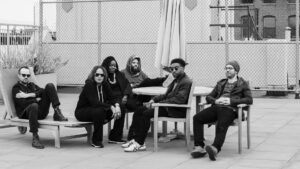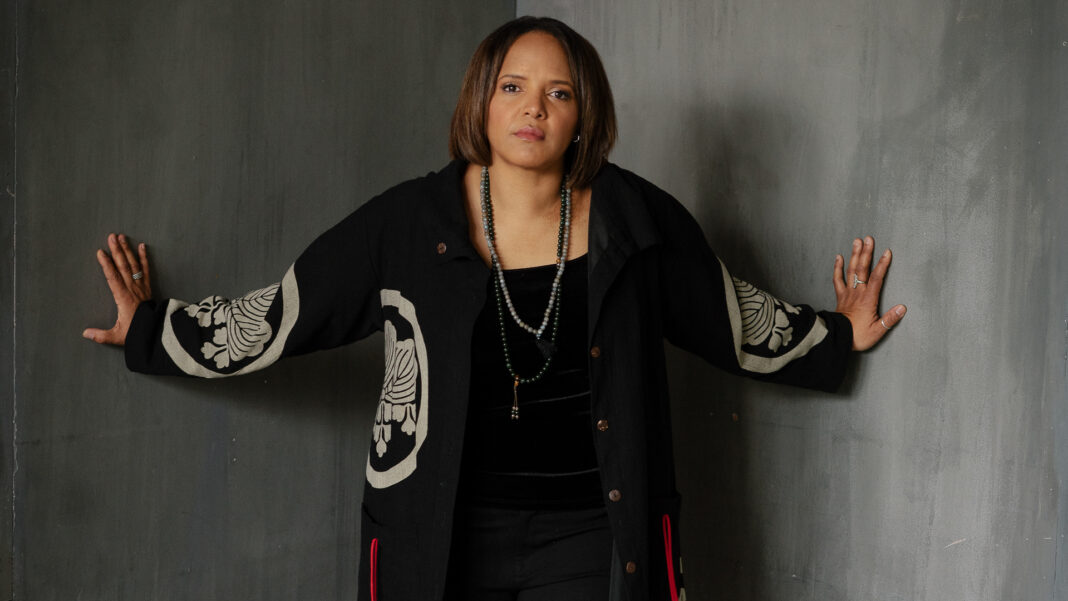For jazz drummer and composer Terri Lyne Carrington the music is the mission and the mission is the music. Ultimately it always has been. Her first Grammy Award came for The Mosaic Project which was released in 2011. The album featured women instrumentalists and vocalists. She won a second Grammy for Money Jungle: Provocative in Blue which was released two years later. In 2019 she released Waiting Game which received a Grammy nomination for Best Jazz Instrumental Album.

Waiting Game is a powerful album that features spoken word and hip-hop on the first half and addresses women’s issues, gay marriage and more. The second half is all instrumental and primarily improvised.
When Carrington takes to the stage of the Hollywood Bowl on Sunday with her band Social Science for day two of this weekend’s Hollywood Bowl Jazz Festival, the album’s fully instrumental component might feature prominently.
It was that album and the centennial anniversary of the Hollywood Bowl that became just the first of many topics we discussed during a recent Zoom conversation. What follows are excerpts from that conversation that have been edited for length and clarity.
In a 2019 interview with Jazzwise.com you said of Waiting Game that it was written about the state of the world which had reached, “red level, the danger zone.” That was released two years ago and probably recorded a bit before that. Where are we today in your opinion?
We worked on it from 2017 through 2019. So things were brewing and then the lid was taking off so to say. It doesn’t mean just because the lid was taken off things got worse. Things were probably the same in most cases. It’s just the awareness changed. So I think that there are a lot of people that didn’t really quite fully understand how things are now. Everybody’s eyes seem to be more open it, which is great.
Some people think [the record] predicted what was gonna happen in some ways in 2020. I don’t really see it that way because it was honest from us about what was happening when we wrote the music. It just became more obvious, I think, to some people.
Does that make you optimistic that things will get better?
I’m fully optimistic. Things have definitely moved in the right direction. It has to continue to because we can’t become complacent or think that something has been fixed. It’s a process and it took a long time for things to get to where they are and have been. So it’s not going to change overnight. But I do feel that whatever shift happened in 2020 it was a seismic shift. It’s a reset in some ways and an opportunity for a real transformation.
This performance does coincide with the 100th anniversary of the Hollywood Bowl, albeit celebrated two years late because of the pandemic. Does that in any way influence your approach to the to the appearance? Is there a historical lens, perhaps, through which we can see the venue in conjunction with what you’re choosing to do?
I think that when we look at these venues or institutions, anything that’s 100 years old probably has some history with racism. So as we celebrate these institutions I feel like we should look at the trajectory and look at how they’ve evolved as well. I don’t know really the history of the Bowl, so I can’t really say what it was doing 100 years ago. I just know that when you look at this country and when you look at the entertainment business, when you look at really anything, any field or sector, I don’t believe that any escape having to deal with a history that’s less than ideal when it comes to racism.
Or sexism. You’re one of three women performing at this year’s jazz festival and the other two are vocalists.
That’s obviously been a problem in jazz with women instrumentalists and I’m obviously trying to do my share in working on that. The songs on our records that deal with gender justice, we probably won’t perform just because we don’t have the spoken word and rappers that we had on those. But it’s such a big part of the work that I do in general that I think that my presence alone speaks to that in a way. But now we have to challenge them on these issues.

Drummer Viola Smith wrote an article for Downbeat in 1942 arguing for replacing male musicians going off to war with female musicians who are talented rather than third-rate men who could play and we’re still discussing the issue of gender parity in jazz today.
If you keep having art reflect one group of people then it’s not good for the art. So I think sometimes you have to think about gender and you think about rape and sexual abuse. You have to think about all the people on the margins, all of the people that have been excluded for some reason. Not just because of their abilities, but also because of lack of resources, lack of mentorship, apprenticeship – all of those things. I think it’s really crazy when you think about it.
In your Tedx Talk at Beacon Street you mention that Herbie Hancock and Wayne Shorter told you not to play music, but to play life and that you were seeking a deeper understanding of both. That talk was in 2016. Six years later where are you on that journey of understanding?
It really is just saying that there’s a connection between your life and your music – that it doesn’t have a separation. There’s no separation between the art that you create and who you are. I think some people create art because they have the tools to do it, because they learn the skill. I think all of the skills are important and prove important. But I think at some point you have to not create the art because you have the tools, but because there’s something in your life and in your connection to humanity. There’s something in all of that compelled you to do whatever it is that you do artistically. So I think that’s what they mean.
I feel closer to that baby now. It takes time because you have to live enough to feel even confident about that. If your perspective is something that you really feel, you should put it out there. You shouldn’t do it because it works. You should do it to see what happens. When we do what works at some point you could argue that’s not even creative anymore because we know what works. If you’ve been doing it long enough, you know what works. So to see what’s going to happen means that you’re being fearless and to engage in your imagination in the ultimate way. I think getting closer and closer to that is what most of us hopefully strive for.
Your friend Angela Davis said, “I am no longer accepting the things I cannot change. I am changing the things I cannot accept.” How much does that principle serve as a guide to your work and if so, where is your work headed next to accomplish that?

I love that quote by her. I’ve just started on that journey over the last six years or so. I’m not always sure where I’m going. I just know that I committed to that ideal. And I think it’s a lot of work. It’s very fulfilling because I feel like my work is much more purpose-driven and mission-oriented and I think that’s so important. The universe has definitely supported that because I’m working more than ever and it all feels like it’s good work.
We’ve run without planning so much. We’ve run for the mystery of life – run to discover where I’ll be going. But I do know that the part of me that’s a full-fledged jazz musician I’m going to improvise. I need to be able to pivot quickly. I can’t just make a five-year plan or a two-year plan. I can’t do that. It’s just not in my DNA. So I tend to wait until some mystical moment happens. So I can’t really answer where I’m going. But the one thing I do know is the rest of my days will be about the mission, the various missions. They’re all connected. I can no longer just play because it’s fun or take a gig because it pays well. That’s important, too, but it’s not what drives me. I feel like I’m just getting started.
Main Photo: Terri Lyne Carrington (Photo ©Delphine Diallo/Courtesy of the Artist)













